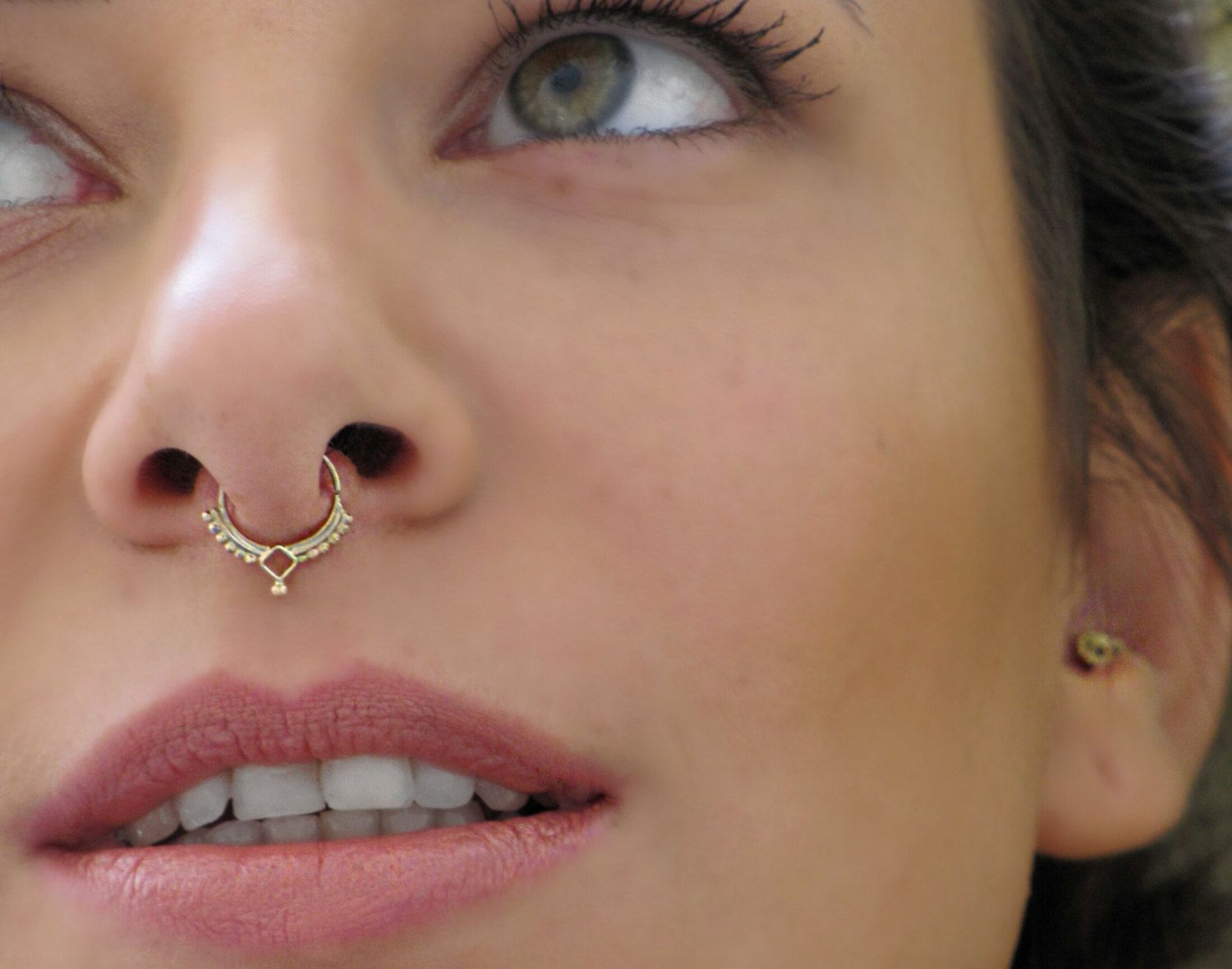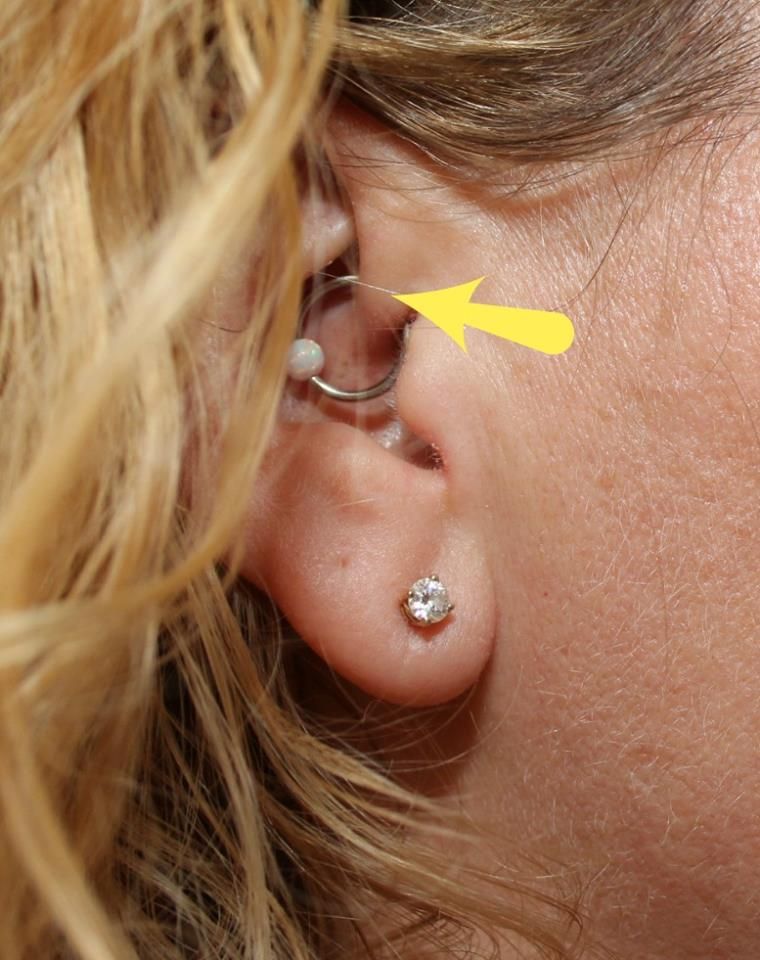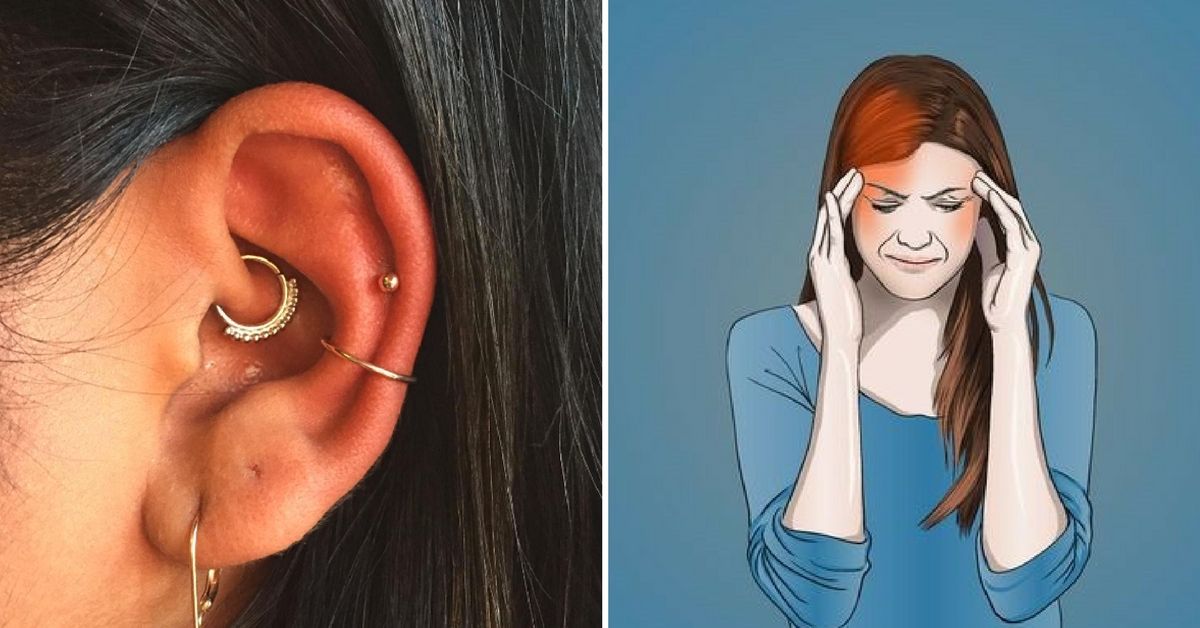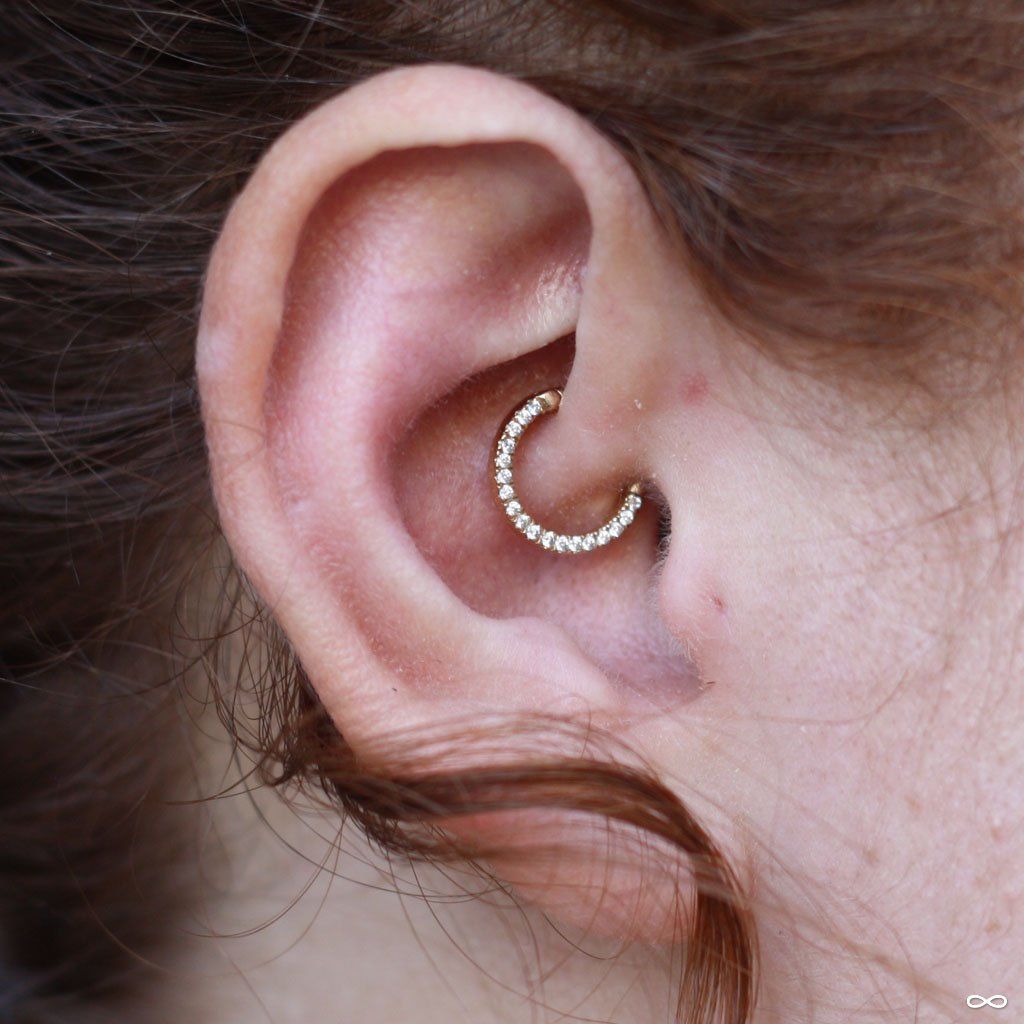For as long as most of us could remember, people have gotten different parts of their bodies pierced as a way to express themselves.
Some do it for aesthetics, as a rite of passage, a sign of rebellion, or even as part of a long-standing cultural tradition.
Over the last few years, non-traditional piercings in places like the septum, helix, tragus, and daith have certainly become a lot more trendy, but not everyone is opting to get them because of aesthetic reasons.

People are actually getting another part of their ears pierced to get relief from the debilitating pain of a migraine.
While there aren't clinical studies to back up their claims, the daith piercing is believed to bring relief the same way other needle-based treatments do.
"The idea behind daith piercings is probably similar to the effect of acupuncture," says Dr. Alexander Mauskop, the director and founder of the New York Headache Center. "Acupuncture does help headaches when certified acupuncturists stick needles into the ear."
According to numerous testimonials from people who have suffered from migraines, the increasingly popular piercing has either completely gotten rid of their headaches or at least significantly reduced the pain and frequency.
How does it work exactly?
The daith piercing is an ear piercing that goes through the crus of the helix, which is the innermost cartilage.
While the procedure is often described as painful, many say it's worth it in order to get relief from severe migraine attacks, which often includes symptoms like extreme sensitivity to light and sounds, nausea, throbbing pain, and vomiting.
The cost of the piercing is also extremely appealing to those who desperately need to get rid of the intense headaches. The procedure usually costs around $40-$50, which is significantly cheaper than other extreme forms of treatment like Botox, acupuncture, and nerve blocks.
The pros
In 2013, Nicole Bandes shared a post on Facebook in which she revealed how the piercing has helped her overcome migraines, despite being "very skeptical" before giving it a try.
"I've now had this for over 6 months and can honestly admit that is has worked for me," Bandes wrote in the viral post. "I've seen a reduction in frequency and intensity of my migraines where nothing else seemed to help."
She continued, "I've dramatically reduced my use of drugs to deal with the migraines. I have had several times that felt like I was for sure going to get one only for it to go away by itself. That's rarely happened in the past."
She admitted that while the piercing wasn't as painful as she expected, it was the healing process that was uncomfortable. This is something to note if you're considering getting it.
Bandes shared another update two years later, revealing that she got the second ear done, and said that she "would still highly recommend anyone with migraines give this a try. It is a simple and inexpensive thing that can easily be removed if it doesn't work."
Over the years, Bandes's experience has been echoed by many others on social media.
"39 days and counting - since my Daith piercing and no migraine - my background headache reduced !! Long may it continue," tweeted user @DaithClub.
"I have had my daith a week and no migraines since the piercing and to me that's amazing [SIC]," wrote @donnajshaw66.

Women's Health writer, Tori Ottley, also jumped on the daith piercing bandwagon after "suffering intense migraines every, single, day for the past two years" and has not experienced a migraine since the procedure.
The cons
While it's easy to get convinced by these individual's experiences, it's important to know where the experts stand on this fad treatment.
Dr. Mauskop says that he still doesn't recommend the daith piercing to his patients for a number of reasons, including the risk of infection and the lack of scientific data.
"The principle is solid," he says, "but the problem is, you're making a hole in the cartilage, creating a risk of infection. And in rare cases people have lost their ears because of infection."
He adds, "So it's not worth the risk, considering migraine is not a lifelong disease or may go away after a few years."
He also raises an important point in that people are finding relief because the piercing causes a placebo effect. This is also backed up by another headache specialist, Dr. Emad Estemalik from the Cleveland Clinic.
Dr. Estermalik says that "receiving a piercing in that area will not alter the pain pathway of migraine" and that the risk of infection "strongly outweighs any unproven benefit."
At the end of the day, the choice to get the piercing is up to you. It's understandable that you would try anything to get relief from such a painful condition, especially when it can interfere with your day to day life, but always discuss it with your doctor beforehand.
You could also try other less extreme alternatives, like these seven ways to naturally kick a migraine before it ruins your day.
Do you or anyone you know have the daith piercing? Did it make a difference?


